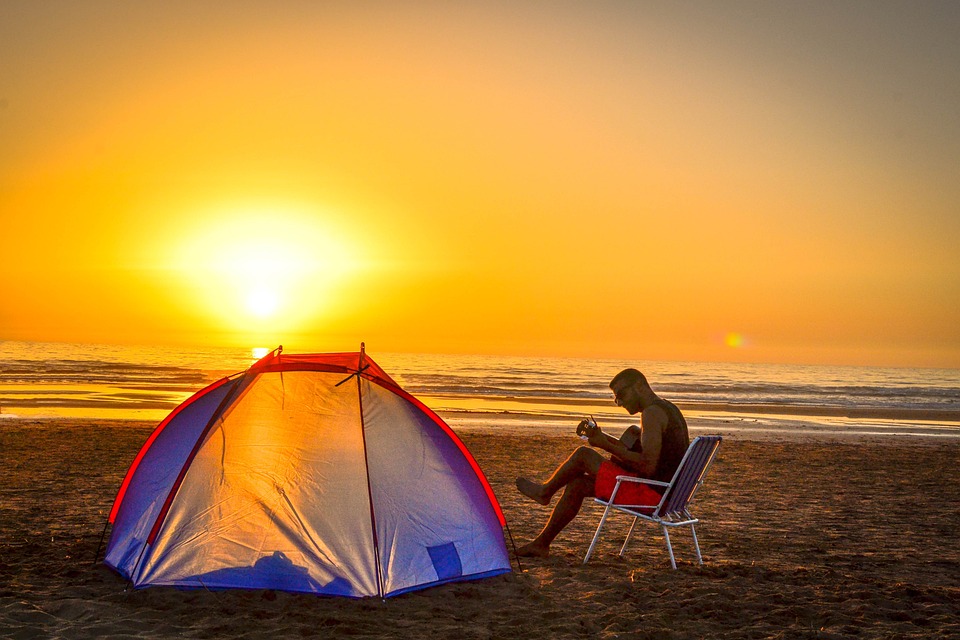Table of Contents
Introduction
Are you tired of camping at overcrowded campgrounds and popular tourist destinations?
Do you crave a serene and off-the-beaten-path camping experience?
If so, this article is for you!
We have gathered expert advice on discovering hidden gems, allowing you to find the best camping spots that offer solitude, stunning natural beauty, and unforgettable experiences.
Research and Planning
When it comes to finding hidden camping spots, research and planning are key.
Utilize various resources such as online forums, camping websites, and travel blogs to gather information about lesser-known camping locations.
Look for recommendations from experienced campers who have explored hidden gems themselves.
Make sure to check the accessibility, facilities, and any restrictions or permits required for each spot.
Weather Considerations
Consider the local weather patterns before heading out to a hidden camping spot.
Some locations may become inaccessible or unpleasant during certain seasons.
Check the forecast and research the climate of the area to ensure a comfortable and enjoyable camping experience.
Remember to pack appropriate clothing and gear to suit the prevailing weather conditions.
Exploring National and State Parks
National and state parks often house hidden camping spots waiting to be discovered.
While many visitors flock to the popular attractions within these parks, venture off the beaten path to find hidden gems.
Explore lesser-known trails, lakes, and campgrounds within these parks to find secluded and breathtaking camping spots.
Consult park guides or speak with park rangers who can provide valuable suggestions.
Local Recommendations
Another great way to find hidden camping spots is by tapping into local knowledge.
Reach out to locals, such as fellow campers, outdoor enthusiasts, or even park rangers in the area you wish to explore.
Locals are often the best source of insider tips regarding lesser-known camping spots.
They can provide valuable insights, warn you about areas to avoid, and direct you to hidden gems off the tourist radar.
Exploring Off-the-Grid Locations
If you are seeking complete seclusion, consider exploring off-the-grid camping spots.
These spots may be located in remote wilderness areas or on public lands away from popular tourist destinations.
While they may lack amenities, they offer unparalleled natural beauty and solitude.
Make sure to obtain any necessary permits, practice Leave No Trace principles, and be prepared with ample supplies for self-sufficiency.
FAQs Section
Q: How can I ensure the safety of hidden camping spots?
A: Safety should always be a top priority when exploring hidden camping spots.
Before heading out, inform someone about your plans and expected return time.
Carry appropriate safety gear, such as a first aid kit and a reliable communication device.
Research the potential risks in the area, such as wildlife encounters or adverse weather conditions, and take necessary precautions.
Trust your instincts and avoid any signs of instability or danger.
Q: Are hidden camping spots suitable for families?
A: Hidden camping spots vary in suitability for families depending on factors such as accessibility, amenities, and the age of children.
Some hidden spots may require lengthy hikes or lack traditional facilities, making them better suited for experienced campers or older children.
Research and assess the specific spot to ensure it aligns with your family’s needs and capabilities.
Q: Do I need special equipment for camping in hidden spots?
A: While special equipment may not always be necessary, camping in hidden spots often requires a higher level of self-sufficiency.
Basic camping gear, including a tent, sleeping bags, and cooking supplies, are essential.
Additionally, consider packing a water filter or purification tablets, extra food supplies, and navigational tools.
Research the specific requirements of your chosen spot and pack accordingly.




